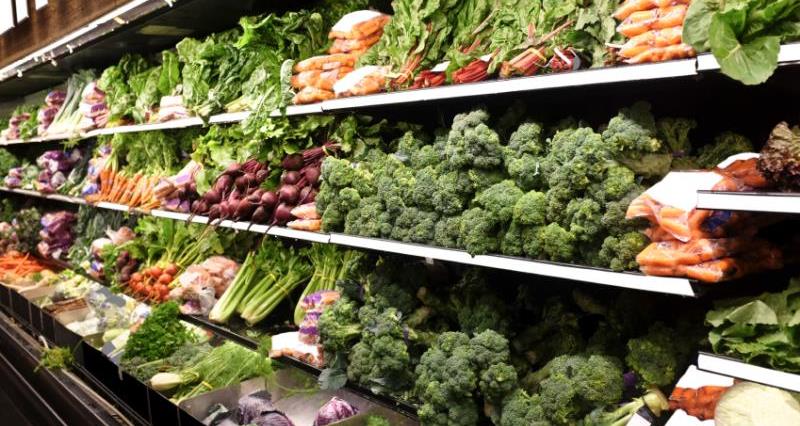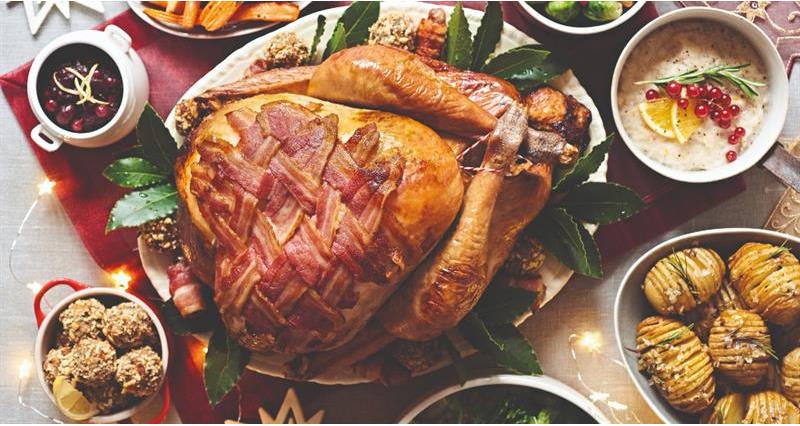The Christmas trading period is crucial for the retail sector. The final 4 weeks of the year accounts for 9% of annual Grocery spend. The City also holds CEOs to account on performance and so looking at their trading results gives a good indication of how well a retailer is performing within the very competitive grocery market. Over the Christmas period supermarket sales grew marginally by 0.2% 12 weeks to 29 December. Despite retailers taking a record of £29.3 billion through the tills (up £50 million on last year), Christmas 2019 saw the slowest rate of growth since 2015.
Ocado, Britain’s fastest growing retailer since June 2019, takes the top spot for the largest increase in sales at 12.5% (12 weeks ending 29th December 2019). Aldi and Lidl saw 5.9% and 10.3% growth in sales respectively compared to Christmas 2018. Lidl performed particularly well selling 24% more branded products than last year and Aldi’s premium range sales rose by £18 million, more than any other retailer. In a bid to chase the discounters, Tesco stated they have invested significantly in keeping prices low for customers, offering a basket of 21 festive products £2.28 cheaper than 2018. As a result Tesco outperformed its rivals to take the lead of the Big 4, despite sales falling by 0.2% over the Christmas period.
The ‘big Christmas shop’ is key for retailers looking to gain market share. All the Big 4 supermarkets; Tesco, Asda, Sainsbury’s and Morrisons lost market share compared to last year. Together, Aldi and Lidl achieved a market share of 13.7%, treble their figure in 2009.
Overall, the meat, fish and poultry category has seen a decline over the 4 weeks ending 29th December with red meat being a key contributor to this. The volume of fresh roasting beef and lamb joints declined 9.5% and 7.4% respectively, compared to the same period last year, despite Tesco, Asda, Morrisons and M&S recording beef sales that outperformed poultry. This is largely driven by promotional strategy, smaller baskets and fewer trips. Young families and larger households switched away from fresh turkeys to frozen turkey which saw a volume growth of 0.7% (12-week period to 29th December). Meat free sales grew marginally by 2.8% in volume which was mainly due to an increase in sales from pre-family and retired customers. This is much lower than the 7.6% growth recorded in 2018.
We also saw a shift in purchasing habits with many customers cutting back from traditional festive classics. Sales of Christmas puddings fell 16% with seasonal biscuits also down 11% and turkey sales down 1% over the 12-week period ending 29th December. Customers opted for smaller cheaper turkey joints such as crowns and legs instead of whole birds. This may be due to smaller household numbers not requiring a large bird, the perceived ease of cooking a smaller joint and the likelihood of another protein dish to be served such as beef, lamb, chicken, gammon or fish. For those choosing to have an alternative or additional meat on Christmas day, chicken topped the volume growth at 0.2% with pork roasting joints suffering the largest decline at 23.7% (4 weeks ending 29th December 2019).
The ’price wars’ continued, particularly in the fresh vegetable aisles as many retailers focused on the affordability of veg for the Christmas Dinner. Tesco, Aldi, Lidl and Asda heavily invested in shelf edge price to win shoppers into store, offering traditional favourites such as carrots, parsnips and red cabbage between 15p and 20p.

Monday 23rd December took the spot as the biggest shopping day for the Christmas period. Spending reached a record of £798 million, achieving not only the busiest shopping day of 2019 but also the biggest spend ever recorded. Despite shoppers visiting the supermarket more often over the 2019 Christmas period, they purchased less in store with the average basket size down 4%. Household spending over the 12 weeks also fell, indicating shoppers have cut back at Christmas. Could this be a sign of consumer confidence in the British economy falling as they look to tighten their purse strings?
As the retailer trading results show, there has been little growth in the grocery market, except for the discounters who continue to thrive in the competitive conditions. Retailers are continuing the battle to remain competitive on price yet seeking to stand out in terms of their ethical values. The challenge going forward will be for retailers to find the balance between these competing priorities; to find the value in their ever-increasing values and strike the balance between affordable food and high welfare and ethical standards.
Over the next year the NFU will continue to work hard to engage and represent the views of members to the retail, and food service, sector, particularly given the uncertainly of our future trading relationship with the EU and the rest of the world.
Figures from Kantar
